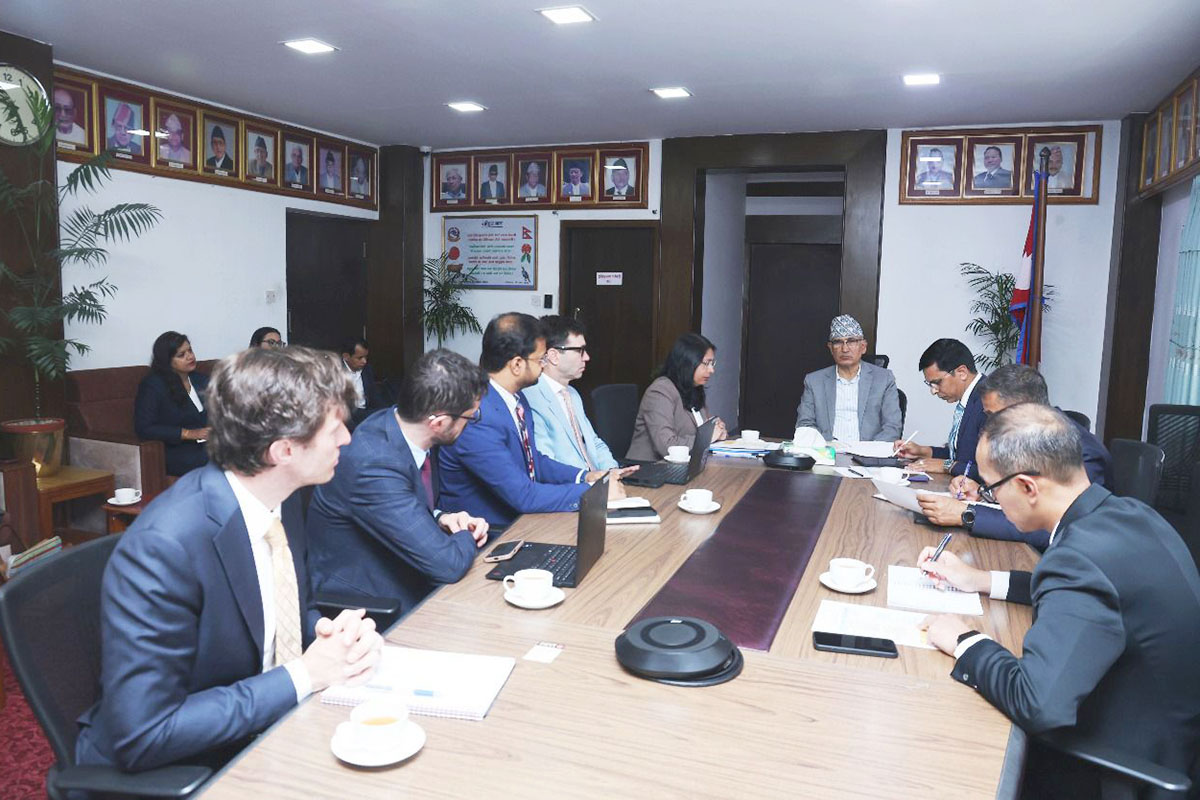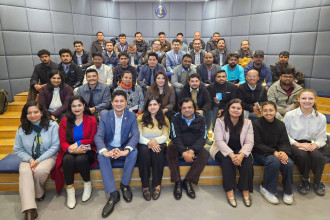
WASHINGTON, DC: An International Monetary Fund (IMF) mission led by Sarwat Jahan visited Kathmandu from May 26 to June 10, 2025.
At the end of constructive talks, Jahan issued the following statement:
“The Nepali authorities and IMF staff reached staff-level agreement on the policies and reforms needed to complete the sixth review under the Extended Credit Facility (ECF).
“The agreement is subject to approval by the IMF’s Executive Board. Upon completion of the Executive Board review, Nepal will have access to SDR 31.4 million (about US$ 42.7 million), bringing total IMF disbursements under the ECF to SDR 251.1 million (about US$ 331.8 million) of a total SDR 282.4 million.
“Nepal continues to make progress in implementing the ECF-supported programme. Performance has been satisfactory, with all quantitative performance criteria for mid-January 2025 met except the indicative target on child-welfare grants. Structural benchmarks have gained momentum, though reforms in some areas remain under way. Key milestones completed or on track include preparation of a tax-expenditure report, publication of revised National Project Bank guidelines and finalisation of a post-Loan Portfolio Review (LPR) roadmap. Significant progress has been made in incorporating recommendations from the IMF’s 2021 safeguard assessment and 2023 financial sector stability report into draft amendments to the Nepal Rastra Bank (NRB) Act, ahead of submission to Parliament. The NRB remains committed to completing the LPR and is finalising the appointment of an independent international consultant to assist with the review. Completion of the sixth review by the Executive Board is contingent on further progress by the NRB on the loan-portfolio review.
“Domestically, economic activity has continued to recover, underpinned by rebounds in construction and manufacturing, expansion of hydropower capacity and a good harvest that helped offset the impact of the September 2024 floods. Growth in fiscal year 2024/25 is estimated to exceed 4%, although still below potential. Inflation, which spiked temporarily following the floods, decelerated to 3.4% year-on-year in April 2025. The external position strengthened as exports, remittances and tourism receipts outpaced the recovery in imports.
“Financial-sector vulnerabilities have not yet eased, with non-performing loans (NPLs) rising to 5.2% in April 2025, affecting bank capital. The financial health of savings and credit cooperatives (SACCOs) remains challenging.
“Looking ahead, growth is projected to strengthen in fiscal year 2025/26, while inflation is expected to remain contained within the NRB’s tolerance level. However, the outlook is subject to downside risks: under-execution of capital projects, rising financial vulnerabilities, elevated global trade tensions and potential disruptions to policy continuity and reform implementation.
“Against this background, the policies and reforms under the ECF-supported programme remain well placed to preserve macroeconomic stability and strengthen Nepal’s policymaking framework. The budget for fiscal year 2025/26 is broadly consistent with the programme’s objective of maintaining fiscal and debt sustainability, while initiating reforms to increase capital spending, providing further incentives for private-sector investment and expanding the public-school midday-meal programme.
“Monetary policy continues to follow a cautious, data-driven approach, with focus on price and external stability to support growth. Amendments to the NRB Act would strengthen the central bank’s independence and governance and bolster the bank-resolution regime. Rising financial vulnerabilities warrant increased vigilance. It is essential to launch the LPR promptly and prioritise measures for problematic SACCOs. Any creation of an asset-management company should be approached with caution, conditional on improvements to the debt-recovery framework—including the insolvency law—and a thorough business-case review. Authorities have made tangible improvements to the anti-money laundering and combating the financing of terrorism (AML/CFT) legal framework, and are now shifting focus to effective implementation of Nepal’s AML/CFT action plan.
“The IMF team held meetings with Deputy Prime Minister and Finance Minister Bishnu Prasad Paudel; National Planning Commission Vice-Chairman Dr Shiva Raj Adhikari; Nepal Rastra Bank Governor Dr Biswo Nath Poudel; and other senior government and central-bank officials. It also met representatives from the private sector, think tanks and development partners.
“The IMF team is grateful to the Nepali authorities for their hospitality and for open and constructive discussions,” the IMF said.
The ECF provides financial assistance to countries with protracted balance-of-payments problems. It supports economic programmes aimed at achieving a stable and sustainable macroeconomic position consistent with strong and durable poverty reduction and growth, and is expected to catalyse additional foreign aid.
READ ALSO:
- FNCCI president meets IMF Nepal mission chief, discusses economic policies
- IMF mission chief meets Finance Minister Paudel for sixth ECF review
- US tariffs will weaken global economy and trigger inflation but not a global recession: IMF
- IMF completes 5th review under ECF for Nepal, approves $41.8m disbursement
- IMF team meets Finance Minister Paudel






